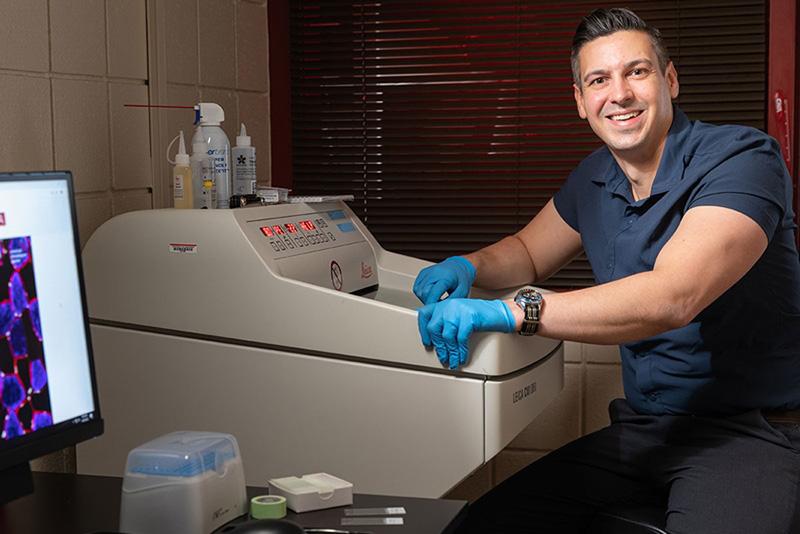 Kevin Murach, an assistant professor in the University of Arkansas College of Education and Health Professions (University Relations)
Kevin Murach, an assistant professor in the University of Arkansas College of Education and Health Professions (University Relations)Researchers at the University of Arkansas will study the effect of exercise on aging, thanks to a $2.5 million grant from the National Institutes of Health.
Kevin Murach, an assistant professor in the College of Education and Health Professions, will serve as the principal investigator of the study, which will examine how exercise can mitigate the decline of tissue function with aging.
While it’s understood that exercise can play an important role in slowing the decline of skeletal muscle with aging, it’s less clear to what degree physical activity can prevent aspects of aging and what is actually happening in the muscles on a molecular level.
The project will focus on the role of a protein known as MYC, which is one of four factors that can revert cells back to a younger and more adaptable stem cell state, according to a news release.
“We’re really focused on this one transcription factor [MYC] that’s exercise responsive,” Murach said. “We’re going to manipulate it in different conditions throughout the aging process to see if we can make old muscle appear young again, but also doing so in combination with exercise.”
Murach said the work should serve as a foundation for understanding skeletal muscle mass regulation with aging, and provide new directions for exploring what mediates the age-defying effects of exercise.
Professor Nicholas Greene, director of the Exercise Science Research Center, will serve as a co-investigator, along with Wen-Juo Lo, an associate professor of educational statistics and research methods. Kyle Quinn, an associate professor of biomedical engineering who runs the Arkansas Integrative Metabolic Research Center, will provide additional support and resources.

